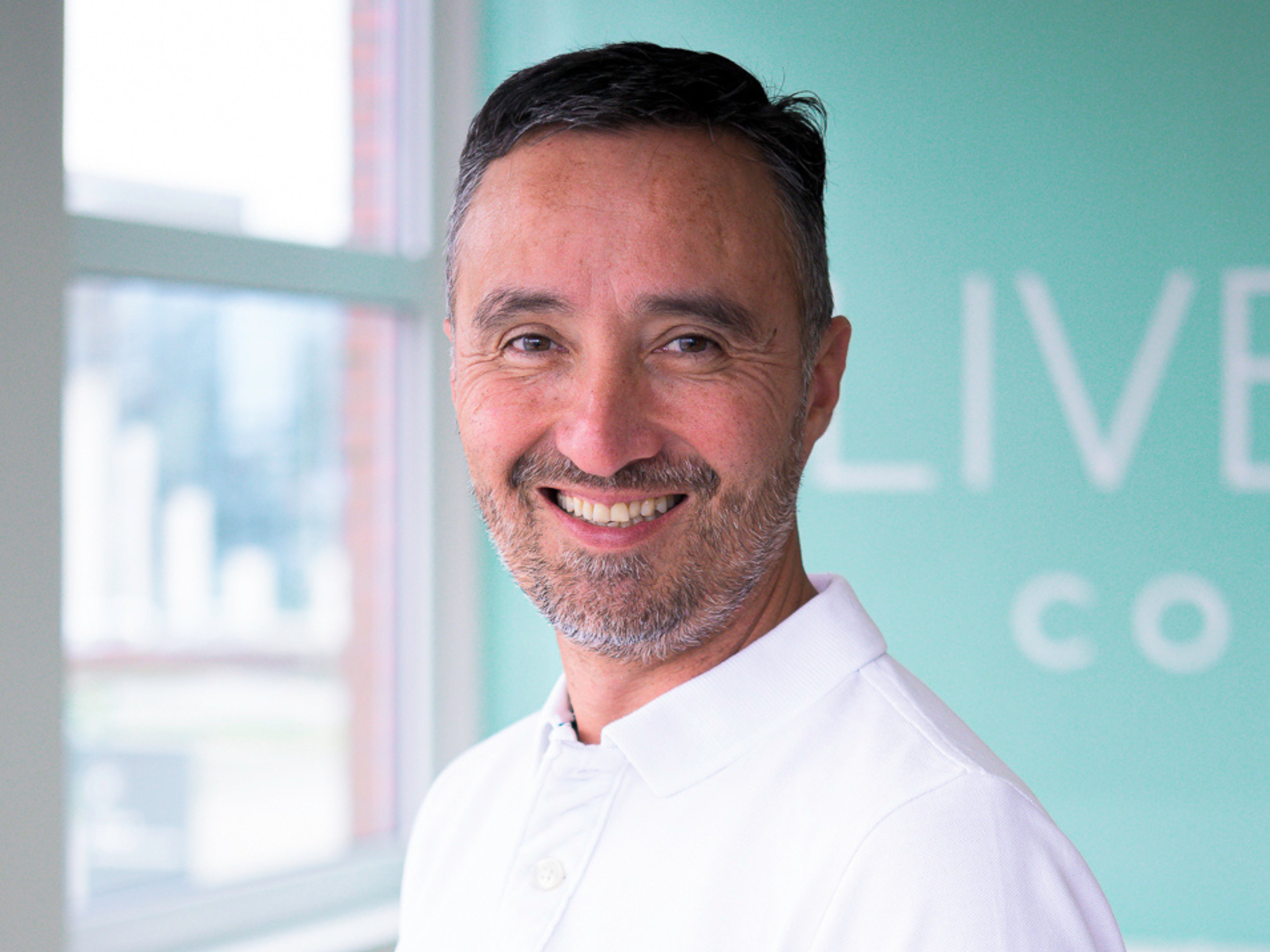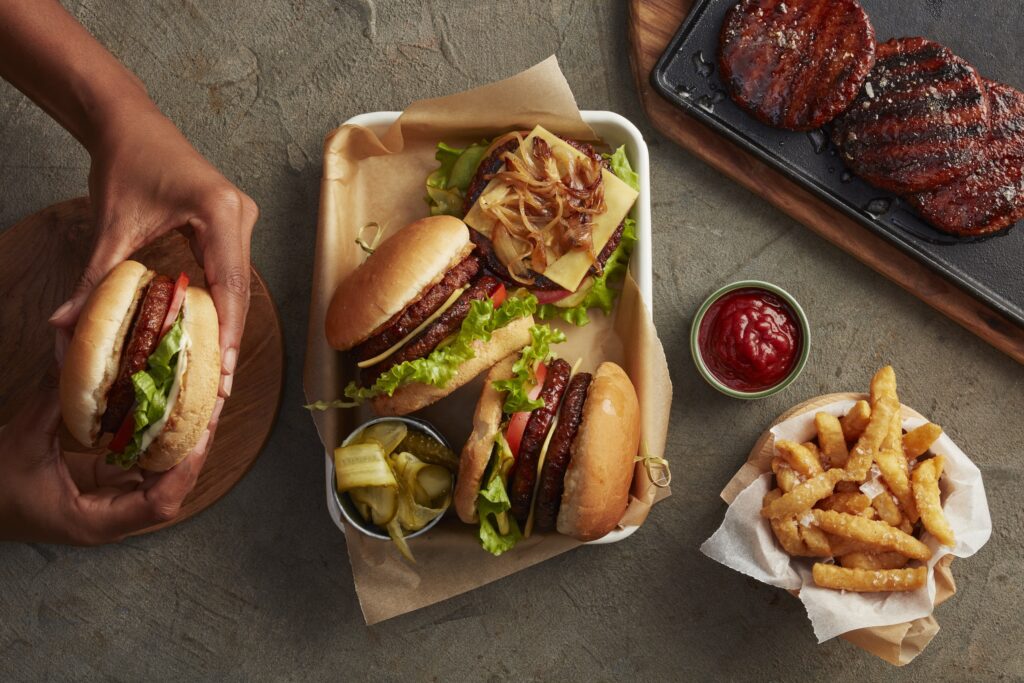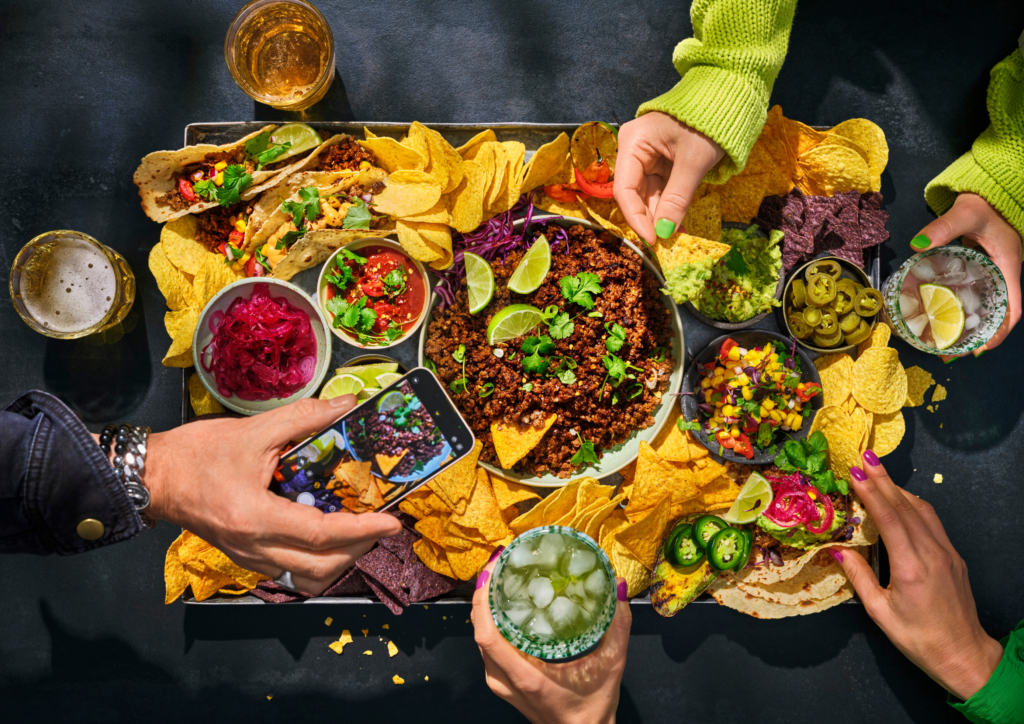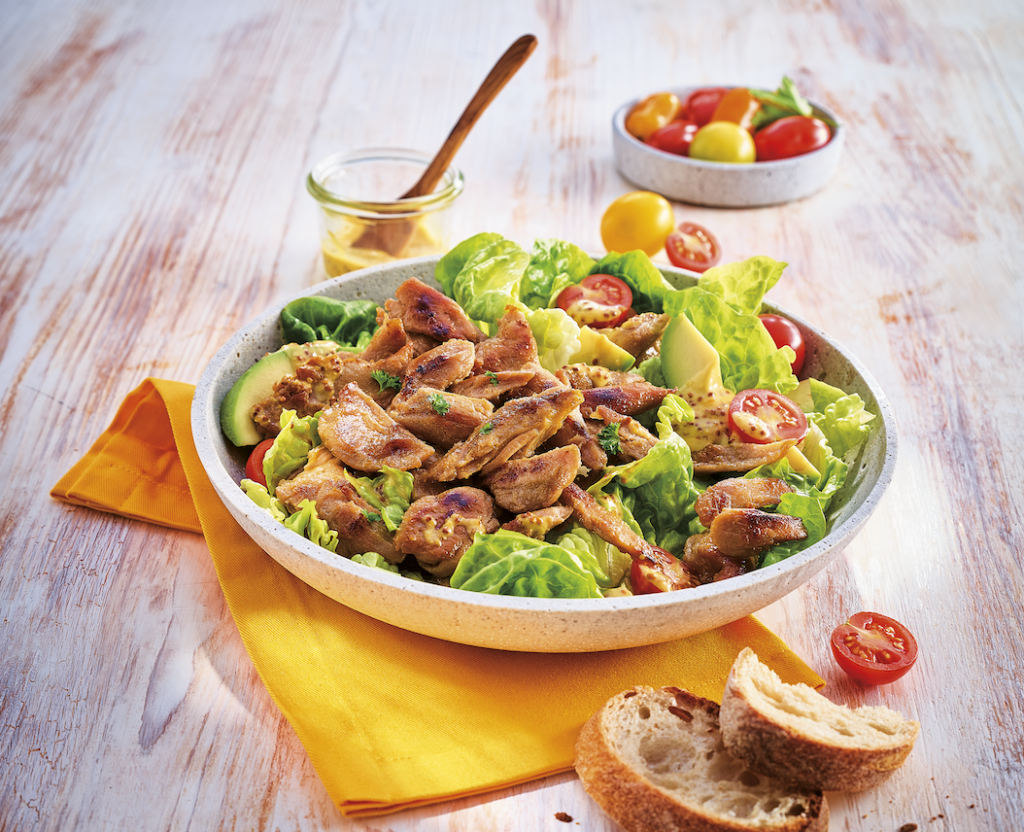
Livekindly Collective, the company behind brands like Oumph, Like and Fry’s, achieved profitability in September, countering the plant-based meat slowdown.
In September, Livekindly Collective CEO David Suarez revealed that the plant-based holding company delivered high single-digit year-on-year growth in the first half of 2025, and was on course to become profitable in the autumn.
As it turns out, the firm hit the milestone that month itself, becoming one of the only privately held plant-based protein producers to reach profitability.
“September delivered around 15% revenue growth versus the same period last year,” Suarez tells Green Queen. “[It] was our second-best revenue month to date, and we expect to continue building towards surpassing our historic peak as we move into next year.”
He adds: “We are especially enthusiastic that our strongest growth is coming from key strategic areas of the business, which shows that the focus and discipline behind our plan work well.”
The owner of Like, Fry’s, Oumph!, No Meat, Dutch Weedburger, and Alpha Foods demonstrated strong retail performance in all markets it operates in, while rapidly growing its B2B business too, which posted a 48% increase in 2024 and is on course to rise by 120% this year and up to 200% in 2026.
The positive results aren’t a one-off. “October continued the strong revenue performance,” says Suarez. “However, [it was] slightly behind September due to the usual seasonal trends.”
Livekindly Collective’s profitability formula

When it comes to sales, it has been tough going for producers of meat alternatives, many of which have either expanded into whole-food options, pivoted to B2B manufacturing, been acquired, or ended up shutting shop.
Retail revenues have plunged in various markets, including the US, the UK, Spain and the Netherlands (although global sales saw a modest uptick in 2024). How did Livekindly Collective buck this trend?
“I’d say it’s sharp focus and consolidation supported by the three pillars of performance improvement: clear operational discipline, tight cash management, and growing margins. That’s our profitability formula,” says Suarez.
“Profitability, in turn, puts us in a favourable spot and unlocks future growth trajectory. Livekindly Collective is the only pure-play, fully integrated platform combining brands, manufacturing, products, and financial discipline, positioning us to scale efficiently and sustainably.
“Our progress comes from consistent improvement of operational performance, innovating at speed and smart market creation, including areas like B2B where we are generating new opportunities. This drives healthy gross profit, enabling reinvestment into the business guided by our Seed, Scale, Repeat model, which leverages Livekindly Collective’s global footprint in a way few others can.”
Strong sales across retail and B2B channels

Breaking down the company’s performance by sector, Suarez notes that its retail growth has been rapid as its brands steadily climb in their respective markets.
Fry’s, for instance, has an 85% market share in South Africa and is solidifying its leading position in Australia. “Oumph! is currently the only plant-based brand showing growth in the Nordics, and NoMeat continues to perform well in the UK,” he says.
Like, meanwhile, tops the chunks segment in Germany, and launched in the UK via Tesco in September to “very positive consumer feedback, with many five-star reviews highlighting texture, taste, and overall appeal”. “We’re also pleased with the rollout across Sainsbury’s and Morrisons, where the hot dogs are now available,” states Suarez.
“Our brands are present in more than 40 markets, and we continue to see growing consumer interest in alternative proteins and innovative, tasty protein solutions. Livekindly Collective’s innovation pipeline reflects that, including the new high-protein products, Protein Bites, being tested and successful in Germany, and many more that we are working on for next year,” he adds.
“Alongside our branded growth, we are heavily investing in B2B, including foodservice, private label, and ingredients, supported by our three strategically located pure-play production sites. The B2B business is growing and is roughly a 50/50 split of branded and non-branded, with both sides expected to grow in 2025 and onwards. We are on a mission to bring tasty plant-based protein mainstream.”
Livekindly Collective ‘not an exception, but an example’

Germany continues to be Livekindly Collective’s largest market, where it has witnessed double-digit growth momentum, thanks to Like’s “breakthrough innovation” and “successful marketing”. Suarez points out that it is the most followed plant-based brand on social media in Germany.
“Australia is our fastest-growing market, with Fry’s expanding distribution. In addition, the B2B channel is driving incremental revenue across multiple markets, and here we are rapidly onboarding new customers and building scale, seeing a doubling of the business each calendar year,” he says.
“It’s exciting to see this development as we go forward. Private-label customers can take advantage of our production and food tech capabilities and R&D know-how, too. Every product we deliver is unique and tailored to their needs.”
The Blue Horizon-owned company operates three pure-play factories in Oss (Netherlands), Stora Levene (Sweden), and Pinetown (South Africa), and continues to be open to more acquisitions to bolster its portfolio and footprint.
“We are open to exploring opportunities that add capability, scale, or strategic advantage,” says Suarez. “As we enter 2026, the priority is profitable growth. Profitability gives us the confidence and stability to expand where it makes sense, whether that means new markets, channels, or products.”
Is this a sign that plant-based meat may be rebounding, or is Livekindly Collective just an outlier in a struggling sector? “Every new category, in food or otherwise, goes through stages of transformation, which creates both winners and losers, and we believe in the transformation of the global food system as our long-term goal. There is a better way to feed the world, and it’s based on protein from plants,” he says.
“The category will continue evolving, driven by companies that understand changing consumer needs and innovate accordingly. Livekindly Collective is doing exactly that across all our brands and geographies, now operating profitably. We see ourselves not as an exception, but as an example of how the category can succeed with the right model, financial discipline, and investment in product quality.”
The post ‘Sharp Focus & Consolidation’: How The Livekindly Collective’s Plant-Based Meat Became Profitable appeared first on Green Queen.
This post was originally published on Green Queen.